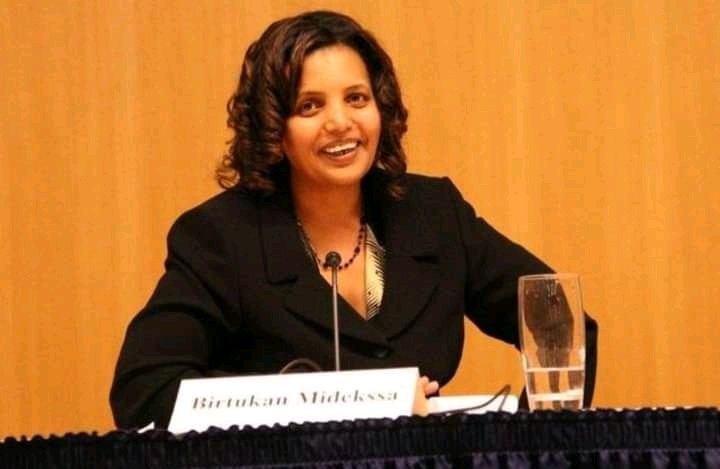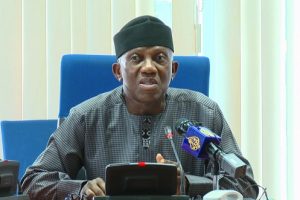
BY DESTA GEBREHIWOT
Over the years, Ethiopia has seen the number of women rising in senior government positions and today they have, relatively speaking, better representations both at the House of Peoples Representatives and Council of Ministers. The share of seats held by women in parliament has also climbed from under three percent in 1991 to 38 percent today.
The gender gap in the cabinet has also upped to 50 percent since Prime Minister came to office. However, their participation remains stumpy in the political landscape.
Although there have been few women who broke the barriers and shined over the mostly patriarchal political cultures, the participation and representation of women in the political arena call rather more works ahead.
It is a stark irony that women, who have an irreplaceable role in transforming the community, are bystanders of their own issues. According to a 2019 report by the world economic forum, Ethiopia held 16th place in the world on women’s political participation.
The slight progress made in the last couples of years has been ascribable to the new leadership that picked dozens of strong women into senior position clinching the role of the supreme court, electoral board and the prestigious position of presidency. Yet, compared to their number and contribution to the wellbeing of the entire community, women are underrepresented in political parties.
And, as the nation is readying itself for the upcoming make-or-break election, political parties are being urged to pull more women into their lists of candidacies and leaderships. The men dominated political culture of the country to this day clamor for elevated women’s role both in the membership and leadership.
In fact, there have been few ordinary women who accomplished extraordinary achievements, breaking all the barriers along the course. Most notably is Birtukan Midekesa, who is heading the National Electoral Board of Ethiopia.
Birtukan, who once was a key opposition political figure in the controversial 2005 election, rose to the essential position on the heels of the reform and she sets an undisputed example to women wishing to pursue a political career.
Birtukan, who herself had to go through unimaginable layers of challenges; later become politician-turned-board chairperson is calling for increased women participation in the country’s politics, where she once shined over.
In another milestone for the country, Sahlework Zewedie, who also cultivated herself to be a career diplomat, now is Ethiopia’s first president. These appointments are emboldening and present an essential opportunity for better and yet it requires more efforts from all stakeholders to keep the momentum.
Speaking with political parties lately, Birtukan told party leaders while presenting a document on the issue, that the participation of women in the political frontiers rather paints a dark picture. She said that women are underrepresented which could have a far-reaching implication in the country’s political situations.
Currently, not many women are heading political parties in the country and it is casting an impact on the democratization process that is making in the country. She argues the problems lie in between men’s pressure and women’s weakness that is stymieing women to clinch important places in political parties.
A political culture dominated by patriarchy, political violence and intensive persecution, increased regimentation of social life which makes independent women civil society organization difficult, absence of strong women’s network and movement, social, economic and cultural burdens and limited interest to be involved in politics have long been the key barriers affecting the women’s participation, Birutukan usually argues.
As a matter of fact, the ruling Prosperity Party has been on the front burner in bringing more women in most of its structures to front places.
Particularly, the rise of Abiy Ahmed into premiership has been one of the U-turn moments for the neglected yet precious women. His coming has brought a very visible change in scaling up women’s representation both in the party and government leaderships. Not only do women take senior position but also occupy one of the linchpins of government structures such as security, and justice positions.
Earning huge acclamation for the progress, there seems to be more guts from the ruling side’s to recruit more women leaders in the years to come. The party has women league branches in which it mobilizes, organizes and recruits women leaders accordingly.
Despite the upward trajectory, yet women’s participation in the political frontiers remains major issues of concern both in the ruling and opposition parties.
Particularly, opposition political parties have not been in the position to follow the same path. This has to do with the financial and technical and structural problems of the parties.
The opposition parties’ weakness adds another challenge to the long lingering political failure in the country, having a visible impact on the party’s effort to representing more women in their party’s structures.
It is fair to acknowledge the efforts of some political parties though in trying to propel women into middle level positions. In fact, the political landscape is not the only one that faced with the problem. The number of women in activism is also very few.
Also, a serious problem is that women, who struggle to keep the balance between family and work and not to lose their focus in either one of them, find it difficult to have a strong voice in national politics.
In addition to serving all traditional roles, society also expects modern women to have strong voice in the political and other crosscutting issues.
Though women are encouraged and are appreciated to obey traditional rules no matter how unjustified they might be, their political participation is discouraged for many reasons.
Women face particular challenges in times of elections that seriously impact and discourage their participation, said Daniel Bekele (PhD), Ethiopia Human Rights Commissioner, at a conference themed “Women’s Political Participation and Election in Ethiopia: Envisioning 2020 and Beyond for generation Equality.” The conference was organized by UN Women Ethiopia, in collaboration with Addis Abeba University’s Center for Human Rights.
“Women politicians face unique forms of online and offline attacks and deliberate actions to discourage their participation in politics. This reflects how patriarchal [our] society is in its functions.”
Most vividly, political discourse which doesn’t allow sufficient sphere to the issues of women, insufficient attention to political empowerment of women is also another crosscutting issue that needs more works. Otherwise, opposite of this will have a dire repercussion not only just in the lives of women but also the entire community. Democratization and inclusive politics cannot be ensured without the participation of women.
“Freedom cannot be achieved unless the women have been emancipated from all forms of oppression. All of us take this on board that the objective of reconstruction and development programme will not have been realized unless we see in visible practical terms that the condition of women in our country has radically changed for better and that they have been empowered to intervene in all aspects of life equal with any other member of the society” once said Human Right Champion and Former South African President, Nelson Mandela
Supporting and strengthening civil society organizations especially independent women organizations, programs and initiatives aimed at empowering women in Ethiopia, establishing and strengthening initiatives among women in the Diaspora and promoting democratic culture and tolerance, working advocacy in national and international networking are the most recommended steps to boost the participation of women in political realm. And, the upcoming election will tell us more on how the trend would continue down the road.
The Ethiopian Herald December 29/2020




